

Cocaine is a powerful stimulant derived from the coca plant. When a person inhales, smokes, or injects it, cocaine races to the brain and blocks the reuptake of dopamine, norepinephrine, and serotonin—the chemicals that regulate pleasure, energy, and focus.
As dopamine floods the reward center, users feel an intense but short-lived euphoria marked by heightened confidence, rapid speech, and razor-sharp alertness.
Because of the high peaks and fades within minutes (especially when smoked or injected), many people take repeat doses in quick succession to “chase” the initial rush.
Each binge reinforces the brain’s association between cocaine and reward, training it to crave more.
Over time, natural dopamine production stalls, leaving users depressed or fatigued when the drug wears off. This combination of intense reward, rapid crash, and depleted feel-good chemistry is what makes dependence form so quickly and why casual use can pivot to compulsion in a matter of weeks.
Addiction begins at the synapse. With every dose, cocaine blocks dopamine transporters, keeping excess dopamine locked into the reward pathway. The brain, trying to restore balance, prunes dopamine receptors and releases less dopamine naturally.
Over time, the brain prunes away dopamine receptors, so the same amount of cocaine barely moves the needle. Before long, you’re taking bigger hits—or dosing more often—just to feel okay.
Skip even one day and your dopamine levels nosedive, bringing on a brutal crash of bone-deep fatigue, joylessness, and overpowering cravings. That misery pulls many people right back to the drug before they can fully detox, locking the habit in place.
Left unchecked, repeated binges damage the heart, lungs, and vascular system while heightening the risk of stroke and mood disorders.
Early, evidence-based cocaine addiction rehab interrupts these neurobiological changes before they become entrenched. Comprehensive care provides medical oversight for withdrawal, behavioral therapies to retrain reward pathways, and relapse prevention planning, dramatically improving long-term recovery odds the sooner it begins.
The National Institute on Drug Abuse reports, “Among people aged 12 or older in 2021, 1.7% (or about 4.8 million people) reported using cocaine in the past 12 months. Among people aged 12 or older in 2021, 0.5% (or about 1.4 million people) had a cocaine use disorder in the past 12 months.” During the same year, approximately 24,486 people died from an overdose involving cocaine. While rates of cocaine addiction have remained relatively stable over the past decade, thousands of people across the country are being negatively impacted by cocaine use on a daily basis.
The Diagnostic and Statistical Manual of Mental Disorders, Fifth Edition, or DSM-V outlines the symptoms of cocaine use disorders. Cocaine use disorders range in severity from mild or moderate to severe. The most effective treatment for cocaine addiction depends heavily on the severity of the individual’s cocaine use disorder.
Symptoms of cocaine dependence include:
In the short term, cocaine jolts the central nervous system, producing a surge of euphoria, energy, and talkativeness within seconds. Physiologically, it causes dilated pupils, elevated heart rate and blood pressure, decreased appetite, and higher body temperature.
Because the high fades quickly, often within 30 minutes, users may binge, raising the risk of acute complications such as chest pain, arrhythmia, seizure, or stroke.
Over months or years, long-term use inflicts far deeper damage. Chronic snorting erodes nasal cartilage; smoking can scar the lungs; injecting increases the risk of infectious diseases. Cardiovascular strain may lead to heart attack, cardiomyopathy, or aortic dissection. Persistent insomnia, weight loss, and gastrointestinal ulcers are common.
Mentally, repeated dopamine disruption fuels anxiety, depression, paranoia, and, in severe cases, cocaine-induced psychosis. Cognitive deficits like poor memory, reduced attention, and impaired decision-making can linger long after abstinence begins.
Together, these physical and psychological harms underline why early, comprehensive treatment is so important.
Red flags appear in three domains—behavioral, physical, and psychological—and usually intensify together:
If you or someone you love shows several of these indicators, professional rehab for cocaine addiction is the safest path forward. Structured care provides medical oversight for withdrawal, evidence-based counseling to break compulsive use, and relapse prevention planning that restores health and stability before the damage becomes irreversible.
Across the country, residential cocaine rehab (sometimes called inpatient cocaine rehab) places clients in a 24-hour treatment setting for roughly 30–90 days.
By contrast, Louisville Addiction Center’s outpatient continuum—Partial Hospitalization (PHP), Intensive Outpatient (IOP), and standard OP—lets clients sleep at home while attending structured therapy during the day or evening.


















At Louisville Addiction Center we offer three effective and flexible levels of clinical care. The best level of care for each client depends on their unique clinical needs.
Across the country, residential cocaine rehab (sometimes called inpatient cocaine rehab) places clients in a 24-hour treatment setting for roughly 30–90 days.
By contrast, Louisville Addiction Center’s outpatient continuum—Partial Hospitalization (PHP), Intensive Outpatient (IOP), and standard OP—lets clients sleep at home while attending structured therapy during the day or evening.

PHP at Louisville Addiction Center meets five days a week for full-day therapy blocks, blending medical oversight with robust clinical programming. Clients spend evenings at home but receive the same daily structure found in inpatient settings—individual CBT or DBT, group skill-building, family sessions, and holistic practices such as yoga or guided meditation.
This schedule is ideal for people coming directly from detox or experiencing high-risk relapse triggers who still need near-round-the-clock support without a residential stay.
By contrast, Louisville Addiction Center’s outpatient continuum—Partial Hospitalization (PHP), Intensive Outpatient (IOP), and standard OP—lets clients sleep at home while attending structured therapy during the day or evening.

Louisville Addiction Center’s standard OP meets one to three hours per week—just enough clinical touchpoints to keep momentum without disrupting work, school, or caregiving.
Sessions focus on relapse-prevention plans, trigger-management skills, and accountability check-ins with the same therapist who guided earlier PHP or IOP work.
Because clients live at home, every skill is stress-tested in real life, then refined in therapy the following week.
Alumni groups and community 12-step meetings round out support, providing a safety net long after formal care ends.
For many working adults, parents, and students, intensive outpatient cocaine rehab at Louisville Addiction Center delivers robust care without full residential commitment. Clients attend three to five three-hour therapy blocks each week, including cognitive-behavioral groups, individual counseling, and medication management when indicated.
This schedule preserves daytime jobs or evening family time, making recovery logistically and financially sustainable.
As progress builds, participants can transition to standard outpatient sessions (one to three hours weekly) while still tapping into peer support meetings, relapse-prevention workshops, and alumni resources.
Flexibility plus evidence-based care equals a realistic, long-term recovery plan.
During a typical residential stay, clients complete a medical intake, stabilize under 24-hour nursing care, and follow a daily schedule packed with individual counseling, group therapy, family sessions, and wellness activities.
Meals, medications, and recreation are all on-site, creating an immersive, substance-free environment.
Louisville Addiction Center does not offer this level of care; instead, those needing inpatient support are referred to trusted hospital partners before stepping down to the center’s outpatient services.
Treatment is anchored in evidence-based modalities.
Unresolved trauma and cocaine addiction often go hand-in-hand. We offer a trauma therapy program for clients struggling with unresolved trauma and post-traumatic stress disorder (PTSD).
At Louisville Addiction Center we believe healing must take place on a mental, emotional, and spiritual basis. We incorporate evidence-based holistic therapies into our treatment programs, including yoga therapy, mindfulness meditation, and creative/art therapy.
Clients have access to individual and group therapy sessions at every level of care we provide. Individual therapy sessions allow clients to explore the reasons behind their cocaine use and dive deeper into personal blockages and challenges. Group therapy sessions are facilitated by a licensed therapeutic professional and cover a range of pertinent topics.
The family plays an important role in cocaine addiction recovery. At Louisville Addiction Center we offer family therapy sessions to the loved ones of our clients. Family therapy helps rebuild healthy family dynamics, improves communication, and helps family members implement and maintain boundaries.
We encourage clients to participate in a 12-step program of their choosing. Additionally, we educate clients on the importance of working through the Steps.
During the IOP and OP levels of care, clients are transitioning back into independent living. Teaching life skills is crucial to making this transition as seamless as possible. We offer vocational training, educational placement services, and more.
Exact pricing varies, but three factors matter most: level of care (PHP costs more than IOP or OP), length of stay, and insurance benefits.
Louisville Addiction Center encourages every caller to click the “Verify Your Insurance” button for a free, confidential benefits check. Outpatient care is typically the most affordable because it excludes room and board and allows clients to continue earning income while in treatment.
The center also accepts most major commercial plans and arranges sliding-scale or payment plans when needed. PHP delivers full-day services five days a week; IOP trims that to multiple three-hour blocks; OP offers the lowest per-session rate while still providing evidence-based counseling.
A benefits specialist can walk you through coverage details in minutes, so finances never block access to help.

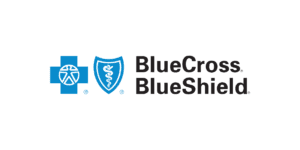
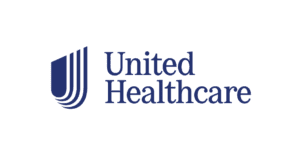

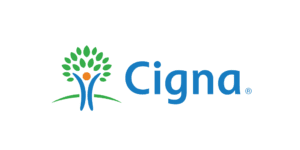

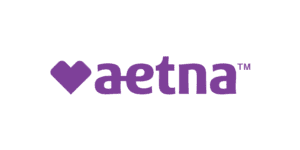
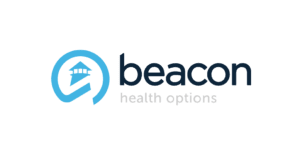
Search results for cocaine rehab lexington or cocaine rehab lexington KY reveal several providers that, like Louisville Addiction Center, offer Partial Hospitalization, Intensive Outpatient, and standard Outpatient tracks.
The core difference lies in scope and speed: Louisville’s single-campus model combines evidence-based therapies, holistic services (yoga, mindfulness, nutrition), and on-site medication management—often with same-day or next-day admission—while many Lexington facilities require separate referrals for ancillary care or have longer waitlists.
Looking nationally, large rehab centers for cocaine can provide luxury amenities and fully residential care, but travel costs, time away from family, and unfamiliar support networks can complicate reintegration.
For most people in Kentucky and Southern Indiana, Louisville Addiction Center’s centrally located outpatient campus balances affordability, clinical rigor, and real-world practice. Clients maintain local housing, lean on nearby loved ones, and step down through PHP-IOP-OP levels without uprooting their lives—an advantage that often translates into stronger long-term recovery.
The end of formal treatment at Louisville Addiction Center is really the start of long-term recovery.
Most graduates step down to the standard outpatient program, meeting one to three hours weekly to fine-tune relapse-prevention skills and process real-world triggers with their therapist.
Clinicians craft an individualized aftercare plan that may include weekly peer-support meetings, alumni workshops, and random drug-screen check-ins for added accountability. Clients are also linked to community resources like sober-living homes, recovery-friendly gyms, vocational training, or faith-based groups, so the lifestyle changes practiced in treatment become daily habits.
Regular progress reviews allow the care team to adjust therapy frequency, recommend booster sessions, or reconnect clients with intensive services if stressors spike.
In short, structured follow-up plus a strong peer network keeps momentum going long after the last in-house session.
If you or someone you love is looking for a cocaine rehab in Louisville, Kentucky, we are available to help. At Louisville Addiction Center we have developed an individualized and effective program for cocaine addiction treatment. The healthy and happy life you deserve is waiting for you. All you need to do is pick up the phone or contact us directly through our website.
As soon as you make the decision to reach out for help you will be connected with a compassionate team member. We walk you through our simple admissions process, ensuring you receive the help you need as quickly as possible. Contact us today to learn more about cocaine rehab in Louisville, Kentucky. We look forward to hearing from you and helping you begin your personal journey of cocaine addiction recovery.
One conversation can launch a lasting recovery. Call 502-586-2433 now to connect with Louisville Addiction Center’s admissions team.
After a brief clinical screen, staff will confirm whether the Partial Hospitalization, Intensive Outpatient, or Outpatient track fits your needs and, when clinically appropriate, offer same-day or next-day admission.
The team can also coordinate transportation, provide FMLA paperwork, and outline transparent self-pay or financing options so cost is never a barrier.
If you’re ready to break free from cocaine, compassionate help is just a click or call away—reach out today and take your first step toward a healthier future.
Get Family Support Now
We understand addiction affects the whole family. Our comprehensive family program helps rebuild trust and restore relationships.
Weekly Family Therapy Sessions
Educational Workshops
Support Groups
Communication Skills Training
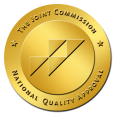




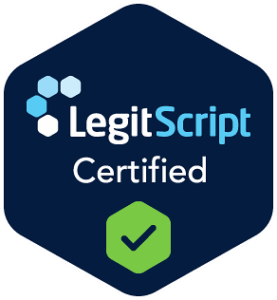
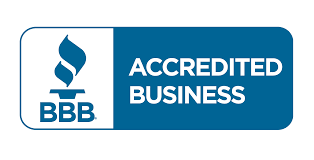


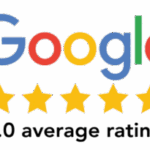










Hear directly from those who have walked the path to recovery. Our patients’ stories highlight the compassionate care, effective programs, and life-changing support they’ve experienced. Let their journeys inspire you as you take your first steps toward healing.

Set yourself free from the struggles of addiction and co-occurring mental health disorders. Reach out to our treatment team in Louisville, Kentucky today.
Louisville Addiction Center is helping people in Kentucky overcome addiction and mental health challenges.

















